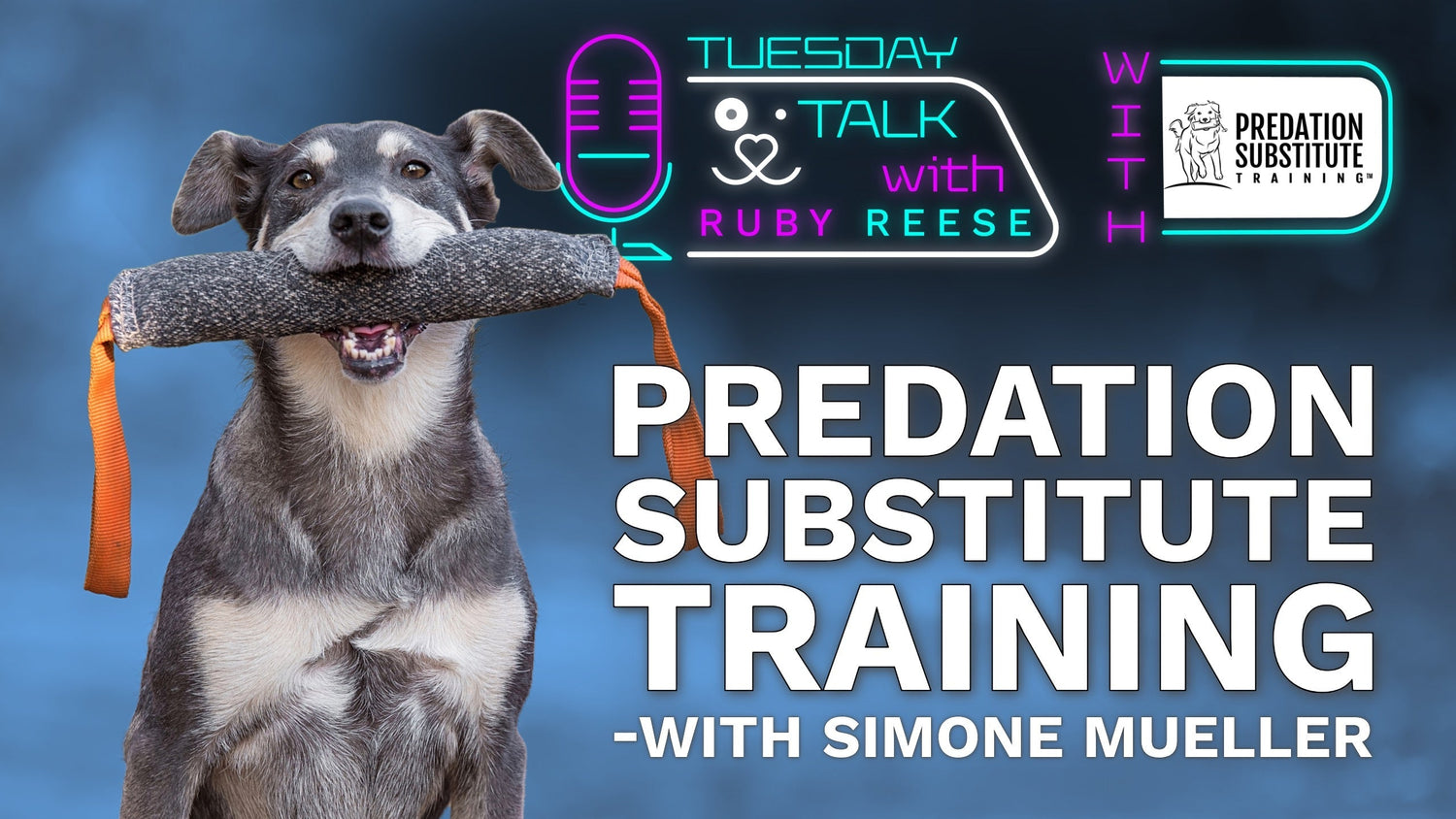In this episode we speak with the acclaimed dog behaviour consultant and author, Simone Mueller, discussing the complexities of predation in dogs, including the predatory motor pattern, the genetic basis of these behaviours, and the importance of understanding intrinsic motivation. Simone emphasises the need for ethical training methods, particularly predation substitute training, to manage and channel these instincts positively. The discussion also covers common myths about predatory behaviour and offers insights into effective training techniques and resources for dog owners.
Takeaways
- Predation in dogs is a complex behaviour that goes beyond chasing.
- Understanding the predatory motor pattern is crucial for dog training.
- Genetics play a significant role in a dog's predatory instincts.
- Dogs perform predatory behaviours for intrinsic pleasure, not just hunger.
- Managing predatory behaviour requires creative and ethical training methods.
- Predation substitute training can help channel a dog's instincts positively.
- A solid recall is essential for managing predatory behaviour.
- Individual differences in dogs affect their predatory behaviour.
- Common myths about predation can mislead dog owners.
- Resources like online courses can provide valuable training insights.
Find out more about Simone Mueller and Predation Substitute Training :
Instagram: @predation_substitute_training
Website: predation-substitute-training.com
Courses:
Free Mystbuster Course
Call of the Chase: The Predation Substitute Master Course
Tip: If you finish the free Mystbuster Course you will get a discount code for the Master Course
Books:
Hunting Together
Rocket Recall
Don't Eat That
Walking Together
Find out more about Ruby Reese:
Instagram: @rubyreeseofficial
Website: www.ruby-reese.com
Also mentioned in this Episode:
Upcoming seminars organised by 4 Furry Paws Galway
24. - 25.05.2025 Michael Shikashio
18. - 19.10.2025 Sailor Jerri + Mattison Skoog
Please Note: In the interest of keeping episodes conversational and entertaining we will make broad generalisations that may not reflect you, your situation or your pet. If you have any concerns please consult a certified professional who will assess your individual needs.



0 comments